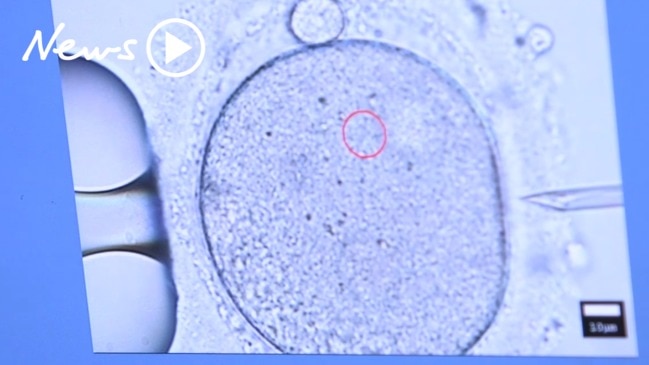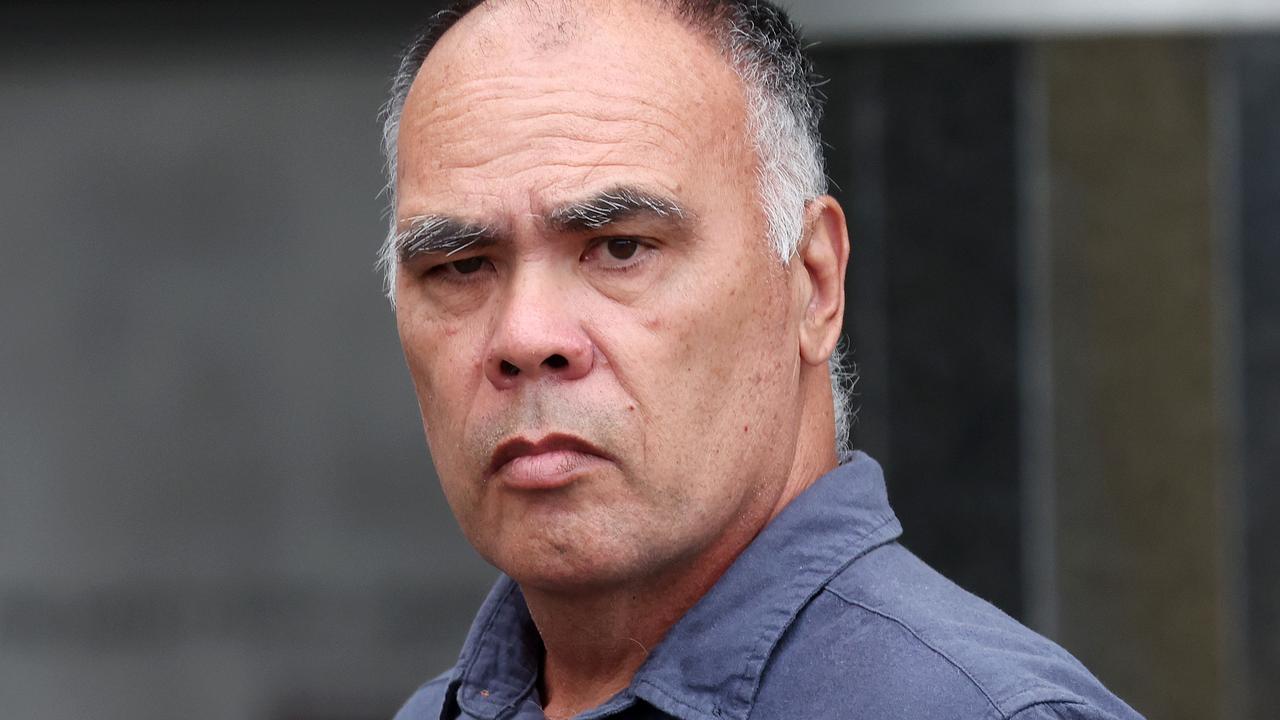How ‘hibernation’ saved Poppy-Rose Tunnah’s life
Poppy-Rose Tunnah was born with a life-threatening heart condition — but a rare medical procedure at only seven days old has ensured she is now finally home with her family like she belongs.

QLD News
Don't miss out on the headlines from QLD News. Followed categories will be added to My News.
IT’S the medical equivalent of hibernation and it helped save Poppy-Rose Tunnah’s life.
The nine-week-old has finally been allowed home from hospital after being born with life-threatening heart abnormalities.
She was just seven days old when doctors at the Queensland Children’s Hospital operated on her tiny heart — no bigger than a walnut — last November.
Rare embryo donation brings double IVF joy at 46
More older mothers after advances in IVF treatments
No male required for future of fertility in Queensland
Desperate couples slugged by soaring IVF prices
For 30 minutes during the delicate eight-hour operation on a heart-lung bypass machine, doctors cooled her body to 20C — putting her in a state of circulatory arrest — to allow them to correct a narrowing of her aorta, the body’s main artery.
“It’s a bit like hibernation,” explained Poppy-Rose’s heart surgeon Prem Venugopal. “When the body’s cold, it doesn’t have the same metabolic demand. At 20 degrees, it’s less than two per cent of what’s normal.
“When they reach 20 degrees, we switch off the pump on the heart-lung machine so there’s no blood going to any part of the body except the brain.”
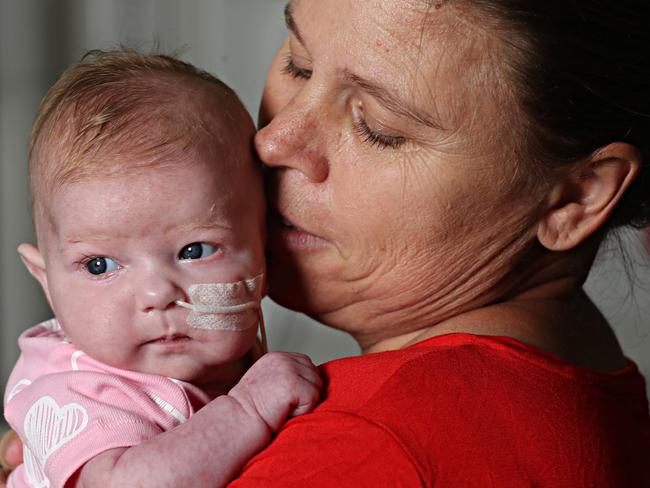
Poppy-Rose’s parents Suzi Henrich, 40, and Colin Tunnah, 48, call her their “miracle baby” after five years of in-vitro fertilisation, and 11 embryo transfers, to have her.
They lost Poppy-Rose’s twin seven weeks into the pregnancy and then at 26 weeks, an ultrasound revealed their daughter had major heart issues.
“We didn’t know whether she was going to survive.”
Poppy-Rose was born on November 6 by caesarean section at the Mater Mothers’ Hospital.
Ms Henrich had a general anaesthetic, not wanting to be conscious for the birth in case her baby was unable to be saved.
Poppy-Rose was diagnosed with heart defects so complicated Ms Henrich asked her medical team to put them in writing.
She had a hypoplastic aortic arch — or a narrowing at the top of the aorta — transposition of the great arteries and multiple holes in her heart among other problems.
At seven days old, doctors operated but they could give no guarantees.
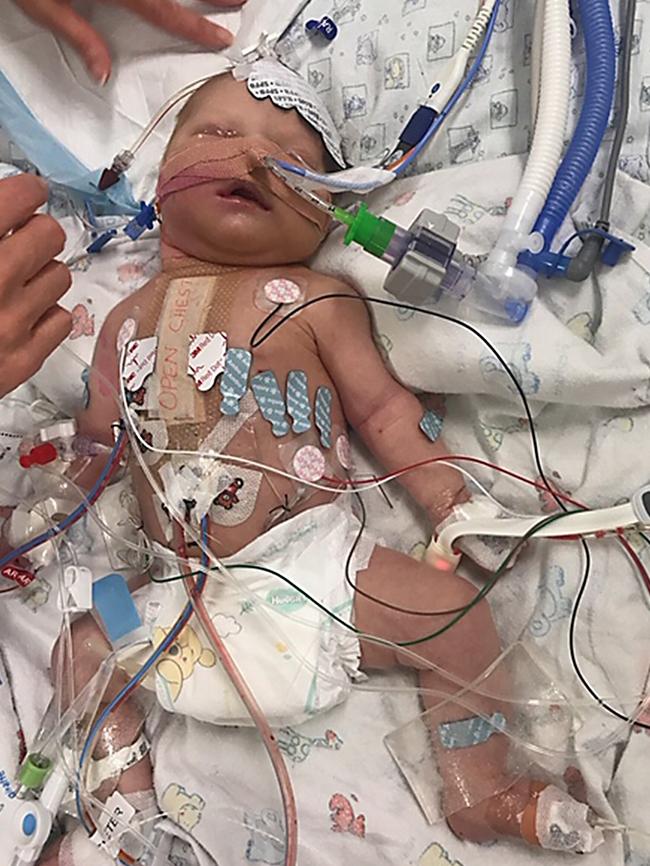
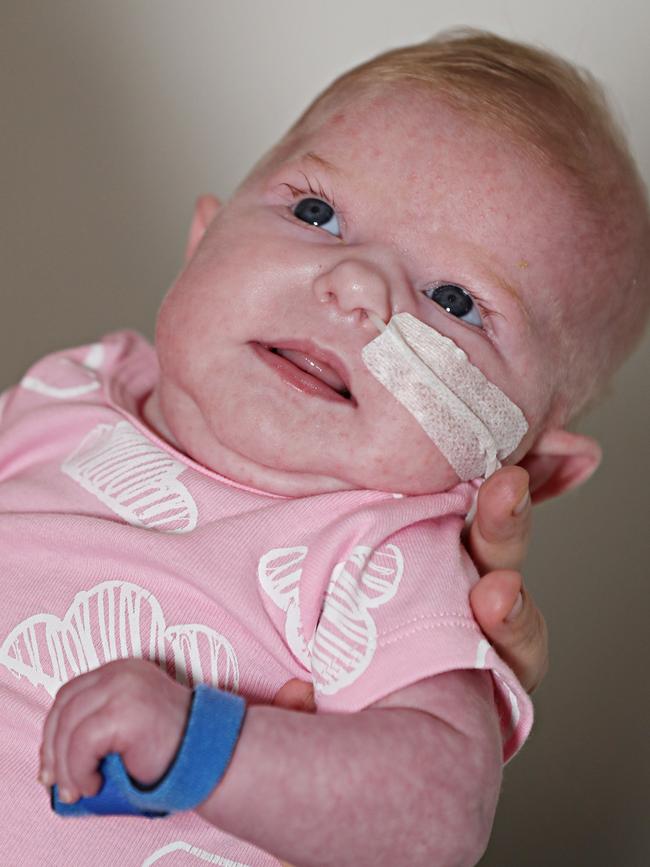
Dr Venugopal cut through Poppy-Rose’s breast bone to get to her heart.
He used donated human heart tissue to patch holes in her heart and to enlarge the aortic arch.
The biggest abnormality was a plumbing issue — her two main arteries were each connected to the wrong heart chamber.
Normally, the aorta is connected to the heart’s right ventricle and supplies blood to the body.
The pulmonary artery delivers blood to the lungs and emanates from the left side of the heart.
Dr Venugopal corrected the problem in rare surgery only performed once or twice a year at the Queensland Children’s Hospital.
He said that 15 years ago, about a third of babies with heart issues as serious as Poppy-Rose died.
But Dr Venugopal said the death rate had been cut to about 10 per cent with improvements in antenatal diagnosis, surgery techniques and medications.
